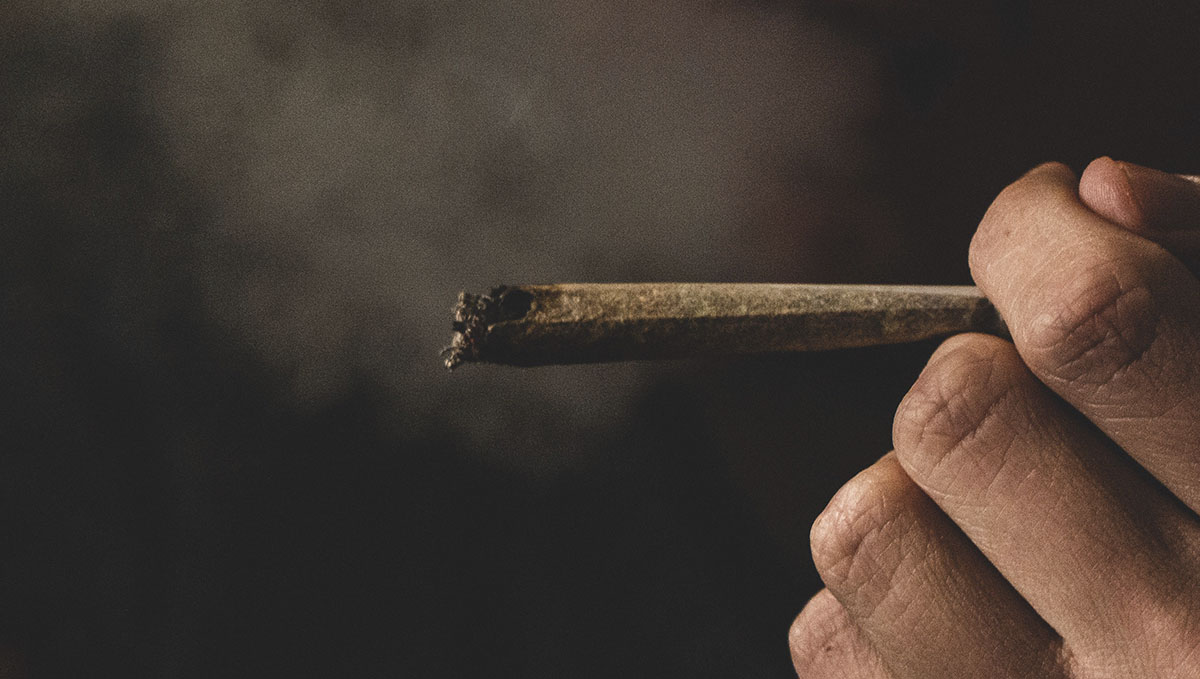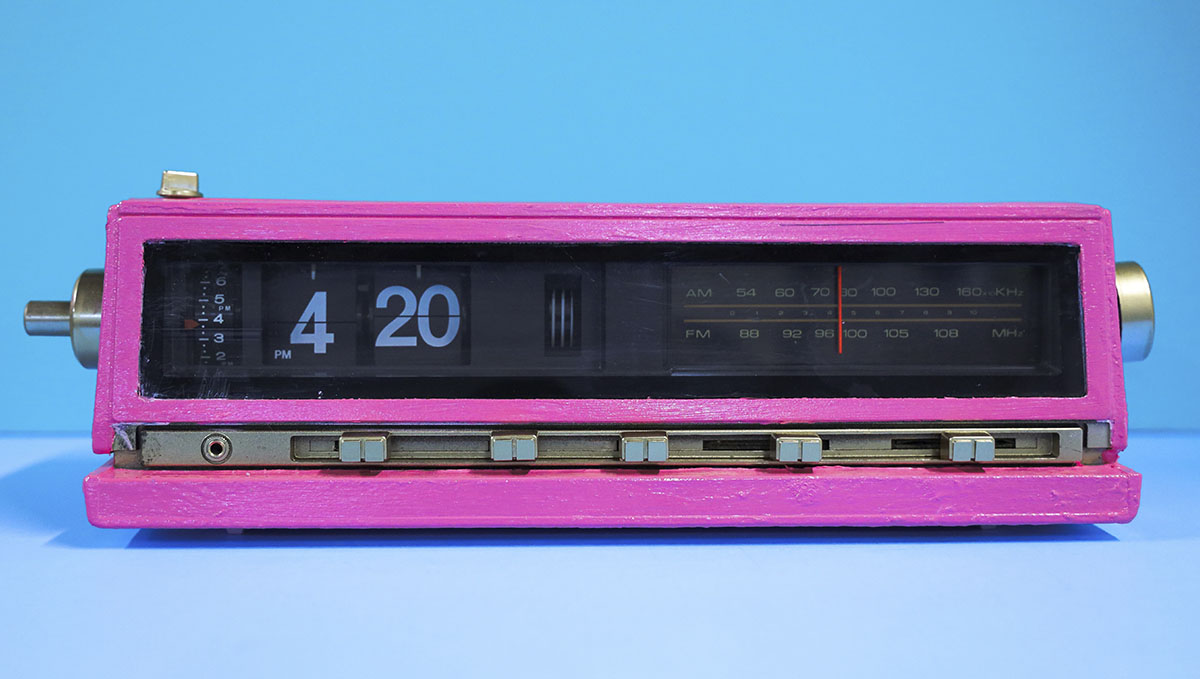Why Do We Perceive Slower Time When Stoned?

- 1. Weed and time prolongation: what does science have to say?
- 1. a. The test
- 1. b. The results
- 2. Ok, so weed dilates time, but why?
- 3. Thc's effects on the brain and time perception
- 4. Summing up what we know
- 5. The bottom line
We've all been there, we've smoked one and suddenly time seemed to run slower. While, yes, time is an artificial construct created by humans to structure our lives, which means there is no real time but just established units that we've all agreed on, perception is indeed real, and minutes do seem to stretch when we're stoned.
You might as well have noticed how we feel like we're going way too fast as we drive or roll through the streets when actually, we're going at an ant's pace. It's funny, although it is not recommended to drive stoned, the true big danger of doing so is taking forever to get to your destination as you go at 20 km/hour.

Given all stoners can agree on this phenomenon of slower time under the influence of marijuana, what does science have to say about it? How is this slowed time perception while stoned explained scientifically?
1. Weed and Time Prolongation: What Does Science Have to Say?
According to a group of investigators who led a study in 2012 based on cannabis and its effects in the perception of time, 70% of the people who consume marijuana experience an extension of it, whatever amount of minutes that had actually passed, in the users' eyes was less than what they felt or perceived. 1 However, we can't solely rely on these studies given they've been led with some critical issues: not taking into consideration some significant aspects, such as if the individuals had consumed weed prior to the study or not.

For this reason, another group of investigators was set to solve this mystery again, two years later, in 2014. The study consisted of 44 subjects who volunteered to complete a couple of tests regarding time dilation before, meanwhile and after having consumed different amounts of THC: one group of 0.015 mg of THC per kg, another one of 0.05 mg per kg, and a placebo group. 2
The Test
The first part of the study was simple, it just involved the users trying to estimate how many minutes had passed while they performed a task that was aimed to distract them. The actual period that had passed ranged between 5 to 30 seconds.
Then, the second part was a test called 'time production task' in which the subjects had to estimate the elapsed period as they also completed a distraction task. What they also had to do for this second task was hold down on a computer key in order to calculate the specific track of minutes.
The Results
After analyzing the results, the investigators could conclude that the volunteers that were stoned experienced a prolongation of time of up to 25%, and underproduced it by around 15% in comparison to the sober subjects.
In conclusion, the study was able to state that weed dilates time, even doubling its perception. When a person is high, 5 minutes can turn into 10. Why? Well, the users who had ingested THC into their system perceived a speeding up of their own subjective internal clock, which as a result caused them to sense the external objective flow to feel slower.

In summary, cannabis consumers experience this effect because the body's internal clock is sped up, which in turn, causes the feeling of outer time passing more slowly. When the high effects faded, the slowed time perception went away too.
Another curious aspect found after the study was that those people who considered the effects of cannabis as unpleasant also perceived minutes to prolong, and they found the overall experience less pleasant.
2. Ok, So Weed Dilates Time, But Why?
Since we could evidence through these previous studies that cannabis users indeed perceive a slower version of time, now we're set to understanding why it is that this takes place.

One good theory is that, since marijuana relaxes us and allows us to forget about the usual everyday distractions, leaving us in a dozed-off kind of state, then hours simply stop being important while we're high. However, doesn't time go by faster when we're having a good laugh and not focused on it?
It could be due to the fact that short-term memory is affected when we're under the effects of marijuana, therefore we forget what has just happened, and time perception becomes affected.
Let's Experiment
Let's play a game, you burn one, put a timer on and then try to guess how many minutes passed by! Where you even close?
Another theory on why cannabis might give us a prolonged perception of time is due to what's known as the 'perceptual theory' which states that the pace of time is strongly linked to the amounts of information that the mind is absorbing and processing: the more information it's given, the slower it perceives time.
A good example of this is with kids, where almost everything feels new, hence everything feels slower. When we grow up, we get used to the information surrounding us, therefore it's all faster. Since weed throws us into a more naive or childish state of mind, and what once bored us could now spark excitement, this could be the reason why we perceive slower hours.
3. THC's Effects on The Brain and Time Perception
A study led in 2014 may help explain this phenomenon. It found that the brain network known as the thalamo-corticostriatal circuit plays a major part in how we perceive time. In this same region of the brain, we can find a big amount of cannabinoid receptors. Therefore, when THC gets to this receptor in this area of the brain, it affects the usual functioning of the receptors, causing a shift in the way we perceive it. 3
But this is also strongly linked to the frequency in which a person consumes weed. This is why we couldn't rely fully on the first study's deductions, because they didn't take into consideration this aspect. The second one, however, did and these were the conclusions.
The study's investigators noted that the most significant alterations in time perception took place in those individuals who rarely consume marijuana. Meanwhile, for those who use marijuana at least 2-3 days a week, the changes in time perception weren't that notorious, independent of the amounts of THC present in their system.

Simply put, true stoners no longer fall for the alteration of time perception as newbie smokers do. According to the researchers, using THC on a regular basis may weaken its usual psychoactive cannabinoid's perception-altering effects and our receptors become less sensitive to the cannabinoid after we've developed a tolerance to it.
Since frequent weed users are already familiar with the usual effects the plant gives them, they're no longer surprised by them, so they, we, learn how to balance them out and normalize them. If you'd like to experiment yourself with these time-altering effects, then perhaps you'll need to take a tolerance break to reboot your system's tolerance to weed's cannabinoids and be able to perceive the changes again.
Find out all about tolerance breaks from cannabis in the article above.
3. Summing Up What We Know
So, to sum up all of the theories we've been talking about, let's see what we've learned concerning mary jane and its prolonging of time:
- The cause behind this time prolongation is weed's most famous cannabinoid, THC and its relation with the part of the brain in charge of time perception;
- The more we consume marijuana on a frequent basis, the more we get used to its effects, the less we perceive an alteration in time;
- The enhancement of our sensations led by cannabis consumption could cause a feeling of prolonged hours when high.
However, since it is yet a mystic and undefinable aspect of life, we might yet find more explanations on why cannabis alters our perception of it.
4. The Bottom Line
Time is uncertain, in fact, it been artificially created by human beings. Therefore, understanding precisely why we may or may not perceive it in a different matter when we're under the effects of marijuana is still, and may always be a mystery yet to reveal.
As much as science or anyone tries to convince us that this or that might be the reason for it, the truth is, when we're set to back certain facts, we tend to guide the truth towards our own beliefs, so science will always be able to find an answer, but that doesn't necessarily mean that that's the ultimate truth.
In fact, we'd rather listen out your stoner theories on why cannabis makes hours feel longer, they're most likely more interesting, fun and creative!
EXTERNAL REFERENCES
- "The effect of cannabis on perception of time: a critical review" Zerrin Atakan, Paul Morrison, Matthijs G. Bossong, Rocio Martin-Santos, and Jose A. Crippa. 2012.
- "Acute Effects of THC on Time Perception in Frequent and Infrequent Cannabis Users" R. Andrew Sewell, Ashley Schnakenberg, Jacqueline Elander, Rajiv Radhakrishnan, Ashley Williams, Patrick D. Skosnik, Brian Pittman, Mohini Ranganathan, and D. Cyril D’Souza. 2014.
- "Obsessive-compulsive disorder: an integrative genetic and neurobiological perspective" David L. Pauls, Amitai Abramovitch, Scott L. Rauch, and Daniel A. Geller. June 2014.







Comments